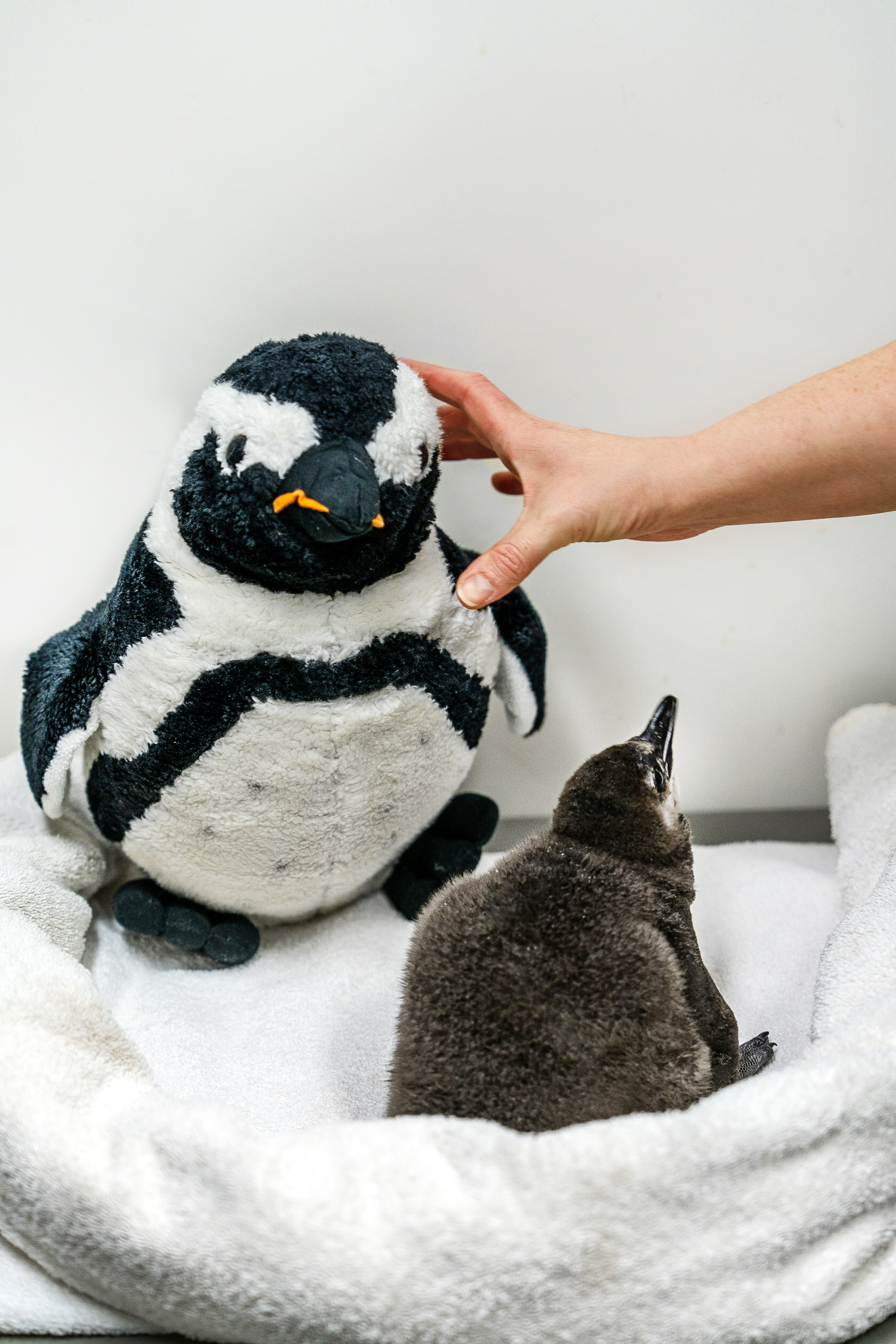Here’s a spot of happy Friday news for you: the Steinhart Aquarium in San Francisco, California, has recently seen a bounty of African penguin chicks hatching – and, predictably, they are 100 percent adorable.
Between November 2022 and January this year, a total of 10 African penguin chicks have hatched at the aquarium, which is quite the uptick compared to the previous rate of hatchings. “To hatch 10 chicks in just 14 months is truly remarkable, especially if you consider the previous 10 chicks hatched over a period of 10 years,” said Steinhart Aquarium biologist Sparks Perkins in a statement.

I’m not crying, you are.
Image credit: Nicole Ravicchio
The chicks are the result of a breeding program spearheaded by the Association of Zoos and Aquariums, which recruited three pairs of penguin parents with the task of maintaining the genetic diversity of the species. The latest proud parents are Parker and Tux, whose first chick was hatched in January – though it’s yet to be named and sexed.
After a 21-day period spent chilling with who we’re calling #Pux, the little fuzzball will go on to join its fellow baby penguins at “fish school”, which frankly, sounds like a delightful place to be. As well as playing with paint, bubbles, laser pointers, and ice cakes, the young birds learn how to swim on their own and eat fish given to them by their human caretakers.
Around three months later, their new skills are put to the test; the team makes sure that they can eat, swim, and get in and out of the water on their own, as well as checking they are adequately buoyant and waterproof. After that, the chicks are introduced into the colony – and, eventually, will hopefully become parents in the breeding program themselves.
With only 9,000 breeding pairs of African penguins left in the wild, the species is currently classed as endangered.
“African Penguins are such a charismatic species, but sadly threats like overfishing, habitat degradation, and oil spills have had a devastating effect on wild populations,” said Brenda Melton, director of animal care and wellbeing at Steinhart Aquarium and member of the African Penguin Saving Animals From Extinction (SAFE) steering committee.
“These issues extend beyond penguins, too— the birds are a visible indicator for the marine environment, and when we see penguin colonies in decline we know there’s trouble for other marine species.”
There have been significant efforts to tackle these issues and conserve the species, which has seen biologists hand-rear abandoned eggs and chicks and release them back into their environment. The recent success of the breeding program is an important step in protecting the penguins under the care of zoos and aquariums too, in more ways than one.
“Every chick we welcome strengthens the genetics and overall population of the species in human care,” said Melton. “More than a million people come through the museum each year, which is an incredible opportunity to educate about these birds and the challenges they face in the wild, and hopefully ignite care for all animals facing threats and endangerment.”
Source Link: There’s An African Penguin Baby Boom In A California Aquarium, And It’s Adorable